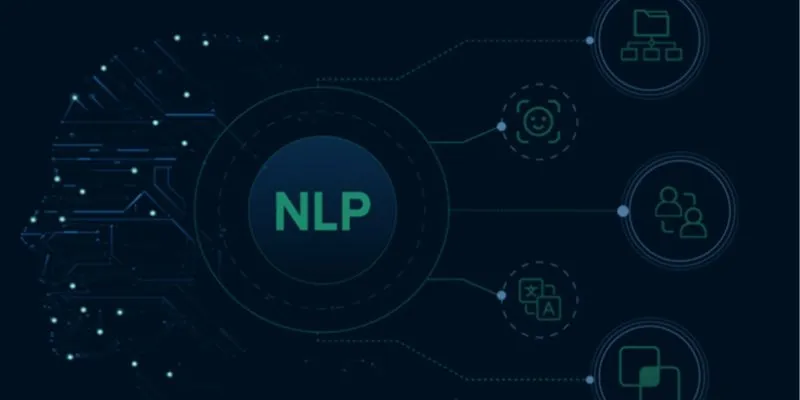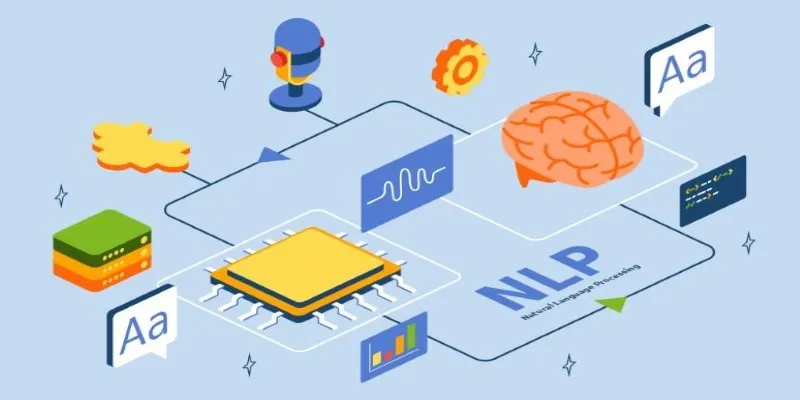One of the most intriguing developments influencing the rapidly evolving e-commerce landscape is conversational commerce, powered by Natural Language Processing (NLP) and chatbot technologies. These AI-driven solutions are transforming how companies engage with consumers, facilitating more natural, seamless, and efficient dialogues. Gone are the days of slow, impersonal customer service.
Instead, companies can interact with consumers in real-time, providing tailored recommendations, answering inquiries, and even processing purchases—all within a simple chat interface. As AI evolves, NLP and chatbots offer nearly limitless possibilities to enhance consumer experiences. From faster response times to 24/7 availability, conversational commerce is revolutionizing how businesses serve customers, paving the way for a smarter, more engaging, and highly responsive era in e-commerce.

What is NLP and How Does It Work?
NLP is a subfield of AI that enables machines to understand and interpret human language. Its primary goal is to bridge the gap between human speech and computer comprehension, allowing machines to process, evaluate, and respond to language naturally. NLP breaks down sentences into smaller components and analyzes grammar, syntax, and meaning to uncover the intent and context behind communication.
Several key technologies, such as language translation, speech recognition, and sentiment analysis, are part of this process. These help machines understand not just words but also the tone and emotional context behind them. For chatbots, NLP is crucial as it enables them to maintain fluid interactions, answer pertinent questions, and understand customer inquiries. By continuously analyzing vast amounts of data, NLP systems become more sophisticated, enhancing their ability to manage complex language patterns and provide more accurate, contextually relevant responses over time.
The Rise of Chatbots in Conversational Commerce
Automated software programs known as chatbots simulate interactions with consumers, transforming customer service across various sectors. By utilizing NLP, chatbots can grasp and respond to human language more naturally, thus enhancing interactivity and efficiency of communication.
In e-commerce, chatbots play a critical role in engaging consumers throughout the purchasing process. Furthermore, being available 24/7, chatbots eliminate wait times and offer consistent service at any time of day. Their ability to handle multiple conversations simultaneously allows companies to scale customer service operations without compromising quality.
How Does NLP Enhance Chatbot Functionality?
NLP enhances chatbot functionality by enabling them to comprehend and interpret human language with greater accuracy and sophistication. Chatbots using NLP can dissect and analyze sentence structures, identifying important elements such as sentiment, intent, and context. This allows chatbots to respond in a manner that feels more natural and human-like.
When a consumer asks a question, the chatbot can recognize not just the words but also the underlying meaning, providing a relevant and contextually appropriate reply. NLP also allows chatbots to manage more complex interactions, including multi-turn dialogues where past exchanges and context matter. NLP-powered chatbots continuously learn from vast amounts of data, enhancing their ability to handle a range of consumer questions and tasks, allowing businesses to offer more personalized and efficient customer experiences, thus increasing engagement, satisfaction, and reducing the need for human intervention.
Benefits of NLP and Chatbots for Businesses
Below are the key benefits of using NLP and chatbots to improve service, save time, and boost sales for businesses:
- Improved Customer Engagement: NLP-powered chatbots engage customers with natural and human-like conversations, making them feel valued and understood. Effective dialogues help establish trust and keep customers interested in the brand. Quick, reliable responses encourage customer loyalty and repeat business.
- 24/7 Availability: Unlike human operators, chatbots are always active, providing assistance day or night, fostering dependability. Whether addressing simple issues or answering queries, chatbots are ready whenever a customer needs them.
- Personalized Experiences: Chatbots powered by NLP can remember customer preferences and past interactions, enabling them to offer tailored product recommendations. Personalized assistance increases customer satisfaction and enhances sales opportunities.
- Faster Response Times: Chatbots respond to customer messages instantly, reducing wait times and frustration. Quick responses enhance the overall experience and help maintain customer satisfaction.
- Cost Efficiency: Employing chatbots for simple tasks reduces the need for human customer service representatives, maintaining high service standards while saving costs. Businesses can manage more clients without expanding their workforce, ensuring cost-effective and efficient operations.

Real-World Applications of Conversational Commerce
Conversational commerce is being applied across various sectors to enhance customer experiences and streamline services. Retail companies like H&M; and Sephora use chatbots to help customers find products, check availability, and receive personalized recommendations directly through chat platforms. These bots make shopping more interactive and convenient, often boosting sales by assisting customers through the purchase process.
In banking, chatbots provide secure and quick access to financial services, assisting with balance inquiries, transaction histories, and even fraud alerts. Healthcare providers use chatbots to schedule appointments, send reminders, and conduct basic symptom checks, reducing staff workload and improving patient access to care. Travel agencies employ chatbots to manage bookings, provide flight updates, and respond to frequently asked questions. Food companies utilize chatbots to suggest meals based on customer preferences and take orders. Driven by NLP and chatbot technology, conversational commerce is transforming how businesses interact with consumers, making experiences faster, smarter, and more personal.
Conclusion
The rise of NLP and chatbot technologies has transformed the way companies engage with consumers online. These tools offer fast, personalized, 24/7 support, enhancing satisfaction and driving sales. From retail to healthcare, conversational commerce is improving the efficiency and quality of services. As AI continues to advance, the power of NLP and chatbots will grow. Companies embracing this technology can stay competitive, meet consumer expectations, and strengthen relationships. Thanks to the intelligent use of conversation- driven solutions that prioritize the customer in every interaction, online shopping is becoming smarter, faster, and more connected.
 zfn9
zfn9























